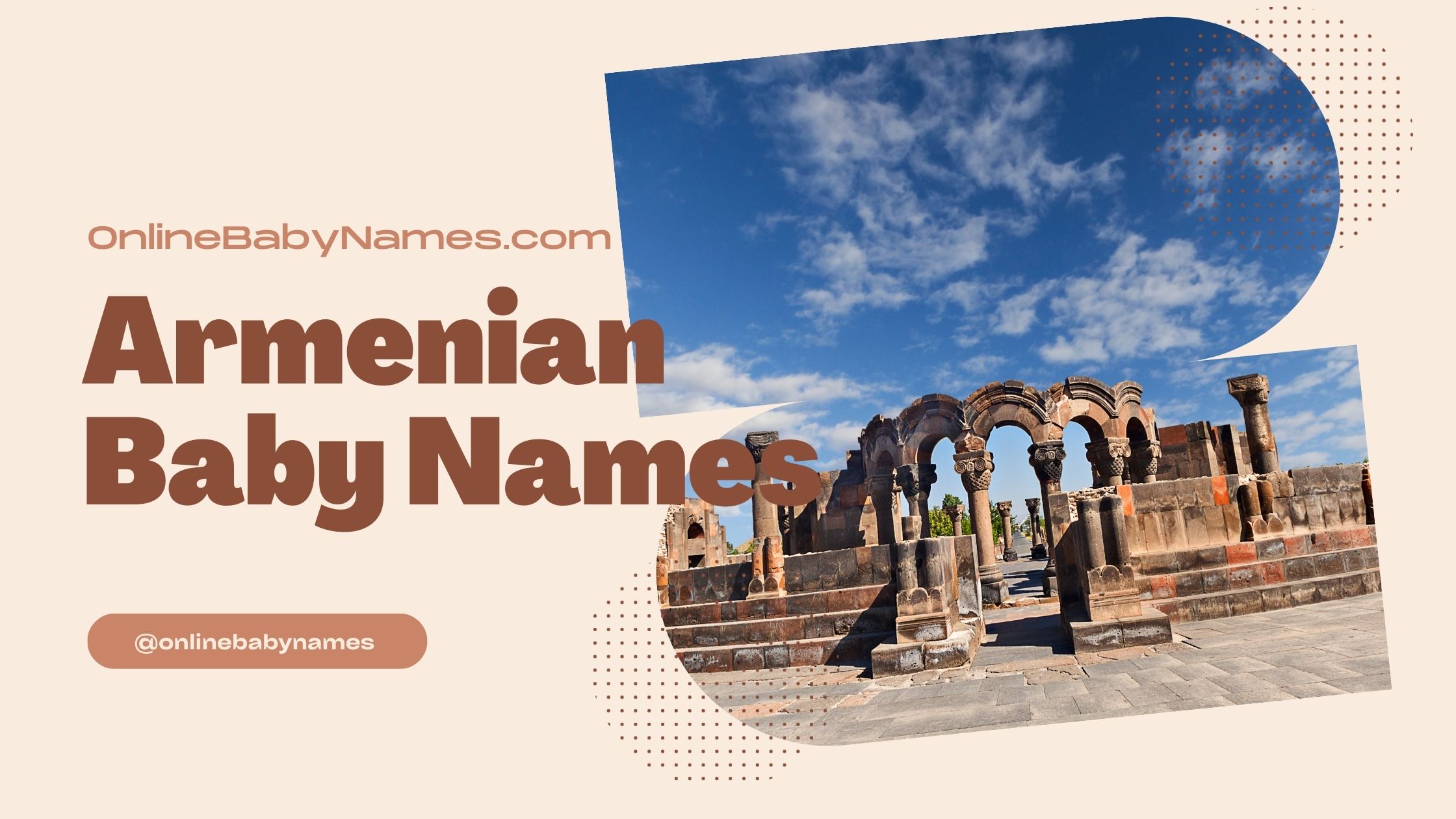
When it comes to choosing the perfect name for a newborn, there’s an incredible array of options available. For parents who appreciate the rich cultural heritage and unique meanings behind names, Turkish baby names can be a particularly appealing choice. Steeped in tradition and reflecting a vibrant history, these names can offer a beautiful blend of the ancient and the contemporary.
Turkey’s cultural blend of Eastern and Western influences has resulted in a naming tradition that’s both meaningful and versatile. The beautiful sounds, rich meanings, and distinctiveness of Turkish names can help set a child apart in today’s increasingly global society. Some notable examples are Leyla (meaning “night beauty”), Aylin (meaning “moonlight”), and Emir (meaning “commander”).
As I dive deeper into the captivating world of Turkish baby names, I’ll be exploring the origins and meanings of some popular choices, as well as revealing lesser-known gems. Whether you’re seeking a name for your bundle of joy or simply intrigued by the language and culture, I hope you’ll be inspired by the evocative, beautiful names that Turkish culture offers.
Discovering Turkish Baby Names
When it comes to naming a newborn, Turkish baby names have always been a popular choice for both their unique charm and deep-rooted cultural significance. If you’re looking to find the perfect Turkish baby name for your little one, let me guide you through some interesting options and the meanings behind them.
Turkish names, like other names from different cultures, often hold a significant meaning derived from the language itself or historical symbolism. It’s important to know these meanings as it can provide an extra layer of depth and connection to your child’s name:
- Aylin (F): Moon Halo, a beautiful phenomenon in the night sky
- Emir (M): Prince or ruler, symbolizing nobility and leadership
- Zehra (F): Flower, representing beauty and grace
In addition to the meanings behind the names, it’s worthwhile exploring some popular Turkish baby names that have gained global popularity:
| Name | Gender | Meaning |
|---|---|---|
| Elif | F | First letter in |
| the Arabic alphabet | ||
| Ali | M | Noble, high born |
| Yasemin | F | Jasmine flower |
| Mehmet | M | Praised, commendable |
When choosing a Turkish baby name, consider how it will be pronounced in different languages or what the potential spelling variations may be. Some names are easy to pronounce across various languages, while others might be slightly more challenging. For instance, Deniz (meaning sea) might be easier to pronounce, while Cenk (meaning battle) could be a bit more challenging for non-Turkish speakers.
It’s also interesting to note that some Turkish baby names are influenced by religion, particularly Islam, given Turkey’s predominantly Muslim population. This can be seen in names like:
- Fatma (F): Daughter of Prophet Muhammad, a highly respected figure in Islam
- Musa (M): Prophet Moses, an important figure in multiple religions
Lastly, don’t forget to consider the rhythm and flow of your chosen name with the baby’s surname. A harmonious name combination can create a beautiful, lasting impression.
In summary, whether you’re after a name that represents your Turkish heritage or you simply want a unique, meaningful name for your baby, Turkey has a rich selection of names for you to choose from. Now
The History Behind Turkish Names
Delving into the world of Turkish baby names, it’s fascinating to find the rich history and cultural significance behind them. As language and culture evolved in Turkey, so did the naming traditions. Allow me to share some insights on the historical journey of Turkish names.
Initially, Turkish names drew inspiration from Old Turkic, the earliest stage of the Turkic language. These names were connected to nature and often held symbolic meanings. For Turkish baby names, popular choices during this time included names like Ergin (meaning “mature” or “experienced”) and Aybike (meaning “moon” and “beautiful lady”).
With the arrival of Islam in the region, Arabic and Persian influences began to play a significant role in Turkish naming customs. The names carried religious and spiritual meanings, such as Muhammed or Fatma, inspired by the Islamic faith. During this period, some common Turkish names included:
- Abdullah (meaning “servant of Allah”)
- Ayşe (meaning “happy”)
- Emine (meaning “faithful”)
In the modern era, the influence of both eastern and western cultures has shaped Turkish naming culture. There’s been a growing trend for selecting baby names with positive traits, nature, or universal appeal. Consequently, Turkish names now have a considerable variety, with both traditional and contemporary options available. Here are a few examples of trendy Turkish names at present:
- Deniz (meaning “sea”)
- Elif (meaning “first rose”)
- Zeynep (meaning “father’s jewel”)
An interesting aspect of Turkish names is the extensive use of compound words. Many names are constructed by combining two different words, where the first word represents an adjective and the second word signifies a noun. This practice adds uniqueness to the names and makes them stand out. Some compound names include:
- Ayfer (Ay = moon, Fer = radiance)
- Erol (Er = brave, ol = become)
- Gökçe (Gök = sky, çe = embellishment)
Despite the various influences and historical changes, Turkish names tend to retain their cultural identity. These names allow individuals to proudly carry the essence of their heritage, no matter where they reside in the world.
In summary, Turkish baby names exemplify a rich tapestry of cultural influences, evolving trends, and meaningful symbolism. As you choose a name for your baby, remember that each name carries with it a piece of Turkish history and cultural pride.
Influence of Religion on Turkish Baby Names
When it comes to choosing baby names in Turkey, religion plays a significant role in the decision-making process. There’s a strong influence of Islam on Turkish baby names, as a majority of the population in Turkey is Muslim. This results in an abundance of names with Arabic and Islamic origins.
Most Turkish baby names are not only beautiful but also deeply meaningful. Many parents choose names that have roots in the Quran or are inspired by important Islamic figures, like Prophet Muhammad’s companions, and other religious personalities.
To give more context, here are some popular religious-themed Turkish baby names and their meanings:
- Aisha: Lively, the name of Prophet Muhammad’s wife
- Ali: Noble, the name of Prophet Muhammad’s cousin and son-in-law
- Fatima: Daughter of Prophet Muhammad
- Hasan: Handsome, the name of Prophet Muhammad’s grandson
In addition to the influence of Islam, some parents prefer more secular or historical Turkish baby names. Many of these names are derived from Old Turkic, Central Asian, and Persian influences. A few examples include:
- Attila: The name of the famous Hunnic ruler
- Aylin: Moon halo
- Gurgen: Of the mountains, a Georgian name
- Timur: Iron, a name of Mongol-Turkic origin
Although religion plays a key role in Turkish baby naming, it’s important to note that other factors are considered too. Parents often seek out names that reflect their family’s cultural heritage or have a strong connection to the regional language. As a result, you’ll find baby names in Turkey with roots in:
- Arabic: Due to the historical ties between Arabs and Turks, many Arabic baby names are popular in Turkey too.
- Kurdish: Turkey has a considerable Kurdish population, leading to many Kurdish names being preferred by parents.
- Alevi: Alevism is a religious and cultural community in Turkey, with distinct baby names and customs.
In summary, the influence of religion is prominent in Turkish baby naming, but many parents also consider their cultural heritage, regional language, and a name’s meaning before making a choice. Whether they opt for religious, historical, or secular names, Turkish baby names capture the beautiful diversity and heritage of this fascinating country.
Popular Turkish Baby Names for Boys
When it comes to choosing a name for your baby boy, Turkish names offer a rich variety of meaningful options. Each name often carries a cultural or historical significance, connecting your child to Turkey’s vibrant history. In this section, I’ll introduce you to some popular Turkish baby names for boys and discuss their meanings.
In recent years, Emir has become a popular choice for Turkish baby boys. Meaning “prince, commander, or ruler,” it has a strong and noble connotation. Emir is not only popular in Turkey but also among those of Arab and Persian descent.
Another popular name is Mert, which means “brave” or “heroic” in Turkish. Mert is a perfect choice for parents seeking a short and sweet name with a powerful meaning. This name showcases the warrior spirit and courage that many parents would like their sons to embody as they grow up.
Aras is yet another well-liked Turkish baby boy name. It originates from the Aras River that runs between Turkey and Armenia, symbolizing the beauty of nature and the importance of geographical landmarks in the region. Choosing Aras as a name for your baby boy can represent your child’s connection to nature and the elements.
More traditional Turkish baby boy names include:
- Ali, which means “exalted” or “noble”
- Hasan, meaning “handsome” or “good”
- Mehmet, a variation of the name Muhammad, meaning “praised”
- Osman, the name of the founder of the Ottoman Empire, which means “youthful” or “tender”
Here’s a table with popular Turkish baby boy names and their meanings:
| Name | Meaning |
|---|---|
| Emir | Prince, commander, or ruler |
| Mert | Brave or heroic |
| Aras | Named after the Aras River |
| Ali | Exalted or noble |
| Hasan | Handsome or good |
| Mehmet | Praised |
| Osman | Youthful or tender |
Choosing the perfect name for your baby boy is a personal and significant decision. Exploring the world of Turkish baby names can lead you to names filled with cultural and historical significance, strong meanings, and beautiful sounds. I hope this list of popular Turkish baby names for boys has provided some inspiration and ideas as you embark on the wonderful journey of parenthood.
Popular Turkish Baby Names for Girls
I have researched and compiled several popular Turkish baby names for girls, which are sure to pique your interest. These names not only reflect Turkey’s rich culture and history but also have unique meanings that can make your little one stand out.
Some popular choices include:
- Aylin: Meaning “moon halo” or “moonlight”, Aylin is a beautiful name that conjures up celestial imagery.
- Elif: This name means “slender” and “first letter of the Arabic alphabet”. It’s a simple yet elegant choice for baby girls.
- Selin: Inspired by the Kızılırmak River, Selin is a poetic name meaning “flowing water” or “river”.
- Zeynep: A beloved and common name in Turkey, Zeynep originates from the Arabic name “Zainab” and signifies “father’s precious jewel”.
- Defne: Capturing the essence of natural beauty, Defne means “laurel tree” which symbolizes honor and victory.
One can also notice a recent trend towards more modern names, showing a blend of Western influences and traditional values. Here are a few modern options:
- Ada: In addition to being a popular English name, Ada holds great significance in Turkish culture, as it means “island”.
- Maya: Meaning “mother” or “goddess of spring” in some Turkic languages, Maya is a popular name with universal appeal.
It’s also worth considering names with unique meanings, reflective of Turkey’s rich cultural heritage:
- Nesrin: Derived from the Persian name “Nasrin,” Nesrin means “wild rose” and is a symbol of passionate love in Turkish folklore.
- Merve: This distinctive name refers to a region in ancient Turkey mentioned in the Quran, symbolizing purity and holiness.
To help you compare these names more easily, I’ve created a markdown table:
| Name | Meaning |
|---|---|
| Aylin | Moon halo/moonlight |
| Elif | Slender/first letter of Arabic alphabet |
| Selin | Flowing water/river |
| Zeynep | Father’s precious jewel |
| Defne | Laurel tree |
| Ada | Island |
| Maya | Mother/goddess of spring |
| Nesrin | Wild rose |
| Merve | Purity/holiness |
Selecting a Turkish baby name for your girl would be a unique and thoughtful choice, celebrating the country’s rich culture and the meaningful stories behind each name. Whether you opt for a traditional name, a modern name, or one that reflects Turkey’s diverse roots, there’s no doubt that your little girl will carry with her a special identity.
Unisex Turkish Baby Names
Creating a list of unisex baby names in Turkish culture can be an exciting journey for parents-to-be. I’ve discovered that there are indeed some unique and captivating names that work well for both genders. In this section, I’ll highlight several of these unisex names and discuss their meanings.
Deniz is a popular Turkish name meaning “sea”. As versatile as the sea itself, Deniz makes a beautiful name for boys and girls alike. Its connection to the natural world and soothing quality makes it an attractive choice for environmentally conscious parents or those seeking an earthy, calming name for their child.
Another alluring option is Cem. This name is derived from the Arabic word جمال (jamal), which signifies “beauty, elegance, grace”. Being unisex, it brings a noble appeal to both male and female babies, making it a popular choice among Turkish parents.
Can is yet another intriguing unisex baby name to consider. Derived from the Persian word “jan” meaning “life” or “soul”, this name carries a powerful message. With its strong meaning and simple pronunciation, Can is a wonderful choice for any child.
In addition to these names, you may also encounter:
- Yıldız: meaning “star”
- Meltem: referring to a “sea breeze”
- Ege: synonymous with the “Aegean Sea”
Turkish baby names cherish the culture’s rich connection with nature and the elements. Here’s a quick assortment of names, along with their meanings:
| Name | Meaning |
|---|---|
| Deniz | Sea |
| Cem | Beauty, elegance |
| Can | Life, soul |
| Yıldız | Star |
| Meltem | Sea breeze |
| Ege | Aegean Sea |
Despite their simplicity, these unisex Turkish baby names carry depth and symbolism. Whether you’re a parent of Turkish descent or simply admire the beauty of Turkish names, you’re sure to find an appealing and meaningful name for your child among these options. The gender-neutral approach not only reflects the modernity of society but also encompasses the vibrancy and diversity of Turkish culture. Your child will surely appreciate the care and consideration that went into choosing such an enchanting, distinctive name.
Unique and Modern Turkish Baby Names
In recent times, many Turkish parents have decided to opt for unique and modern baby names, straying away from traditional choices. This change has been influenced by globalization and a desire to incorporate contemporary trends in popular culture. Let’s explore some examples of these modern Turkish baby names for both boys and girls.
Boys:
- Ege: This name, meaning “the sea” or “Aegean Sea” in English, has become popular due to its simple yet strong sound, and connection to the beautiful Aegean coastline of Turkey.
- Aras: Gaining popularity in recent years, Aras is a name of Persian origin that means “strong” or “confident.” This name’s popularity grew through popular culture after a well-known Turkish actor, Aras Bulut İynemli, gained stardom.
- Doruk: Meaning “summit” or “mountaintop,” Doruk is a distinctive yet appealing name for boys that evokes a sense of adventure and strength. It’s a fantastic choice for parents looking for something unique yet classic.
Girls:
- Ada: Inspired by the word “island,” Ada is a popular choice amongst Turkish parents, seeking a charming, simple name with a modern feel. Additionally, Ada is easily relatable to audiences of different languages and cultures.
- Ela: This name, which means “the color of hazelnut” in English, has been gaining traction among Turkish parents due to its elegant and fashionable sound. Its simplicity and distinctiveness make it a delightful option for baby girl names.
- Asya: Derived from the name “Asia,” Asya is an increasingly popular choice for baby girls in Turkey. It symbolizes the vast continent of Asia, known for its rich culture and diverse landscape.
Turkish baby names reflect an interesting combination of cultural influences and contemporary tastes. Unique and modern names, as mentioned above, are gaining popularity for parents looking to embrace the changing trends in society. With such diverse names available, it’s apparent that Turkish baby names have expanded beyond conventional boundaries and entered a sphere of greater global inclusivity.
Pronunciation Tips for Turkish Names
Turkish baby names are beautiful, meaningful, and unique. However, if you’re not familiar with the Turkish language, it might be challenging to pronounce them correctly. Here are some handy tips to help you navigate the pronunciation of Turkish baby names.
One of the key features of the Turkish language is its phonetic nature. This means that words are generally pronounced exactly as they’re written. Sticking to this phonetic principle will make it much easier to pronounce Turkish names correctly.
Vowel harmony is another important aspect of the Turkish language. It’s the principle that determines how vowels relate to each other within a word. Here are the four major vowel pairs in Turkish:
- a – ı
- e – i
- o – u
- ö – ü
When pronouncing Turkish names, keep this harmony principle in mind and try to maintain the consistency of vowel pairs.
Another helpful tip is the proper emphasis on syllables. In Turkish, stress usually falls on the last syllable of a word. Paying attention to this rule can vastly improve your pronunciation of Turkish names.
Turkish also utilizes a few unique letters which might be unfamiliar to English speakers. These include:
- Ç (ç) – pronounced like ‘ch’ as in “church”
- Ş (ş) – pronounced like ‘sh’ as in “shoe”
- Ğ (ğ) – a soft ‘g’ sound, often silent or lengthening the preceding vowel
- İ (i) – a dotless ‘i’, pronounced like the ‘ı’ in “bit”
- Ö (ö) – pronounced like the ‘eu’ in “Europe”
- Ü (ü) – pronounced like the ‘ü’ in “cute”
Keep these unique letters in mind while pronouncing Turkish names, as they can significantly impact how the name should be pronounced.
To sum it up, when dealing with Turkish baby names, remember the following key points:
- Turkish is a phonetic language – pronounce words as they’re written.
- Follow vowel harmony principles for consistent pronunciation.
- Stress the last syllable in a word.
- Take note of unique letters and their pronunciations.
By understanding these concepts, you’ll be well-equipped to pronounce Turkish baby names accurately and confidently.
Naming Traditions and Customs in Turkey
When it comes to baby names, Turkey has a rich and diverse history reflecting its cultural heritage. Naming a baby in Turkey involves several traditions and customs, and as a blogger, I’ve witnessed how these elements often play a significant role in choosing the perfect name for a newborn.
One of the most noticeable aspects is the influence of religion in Turkish naming practices. Most Turkish names originate from Arabic and Persian roots, which can be traced back to Islamic influence. Apart from religious names, parents also choose names inspired by historical figures, meaningful attributes, and nature.
Another prevalent practice is using compound names. It’s common to see Turkish names consisting of two words, creating a unique and meaningful combination. This approach allows for more personalised and expressive names, striking a balance between tradition and modernity.
In Turkish naming conventions, it’s also customary to pay attention to the importance of a name’s meaning. Some popular themes for baby names include:
- Strength and power
- Beauty and grace
- Wisdom and intellect
- Love and affection
(in no particular order)
It’s worth mentioning that Turkish names are gender-specific and that there is a clear distinction between names assigned to boys and girls. This distinction stems from the influence of religion and cultural factors, as well as an emphasis on preserving family heritage and social identity.
One more tradition to consider is the naming ceremony, also known as “Adak” or “Kırkı”. This event takes place 7, 20, or 40 days after birth, depending on the family’s customs. During the ceremony, family members gather to celebrate the occasion with a feast, and the baby’s name is formally announced. Parents sometimes seek the advice of elderly relatives, ensuring that the chosen name aligns with the family’s beliefs and traditions.
To help you gain a better understanding of Turkish baby names, here are some popular examples:
| Gender | Name | Meaning |
|---|---|---|
| Boy | Emir | Commander, ruler |
| Boy | Mert | Brave, courageous |
| Girl | Aylin | Moon halo |
| Girl | Asya | Resurrection, revival |
In summary, Turkish baby names are deeply rooted in religion, culture, and history. When choosing a name, parents follow various customs and traditions, often opting for compound names, meaningful themes, and gender-specific distinctions. The naming ceremony adds a layer of significance, further highlighting the importance of names in Turkish society.
Conclusion: Choosing the Perfect Turkish Baby Name
Selecting the ideal Turkish baby name can be an exciting and meaningful experience. Considering the deep history and rich culture of Turkey, there are countless options, each with their own unique stories and origins. It’s essential to strike a balance between your personal preferences, cultural significance, and family heritage.
When pondering a possible baby name, it’s helpful to think about the following:
- Meaning: Reflect on the name’s meaning and whether it resonates with the values or qualities you’d like your child to embody.
- Pronunciation: Ensure the name is easy to pronounce and doesn’t create confusion or frustration for your little one or others.
- Cultural Connections: Be mindful of the connection between the name and your family’s culture or traditions – this might serve as a great source of pride throughout your child’s life.
- Uniqueness: Consider whether the name is distinctive enough to help your child stand out, without being too unusual or challenging.
Lastly, don’t be afraid to consult family members or close friends for input and advice. They might offer valuable insight or suggest names you hadn’t considered. Most importantly, listen to your instincts – after all, you know your child best. With careful thought and consideration, you’ll be well on your way to choosing a beautiful and meaningful Turkish baby name for your little one.















